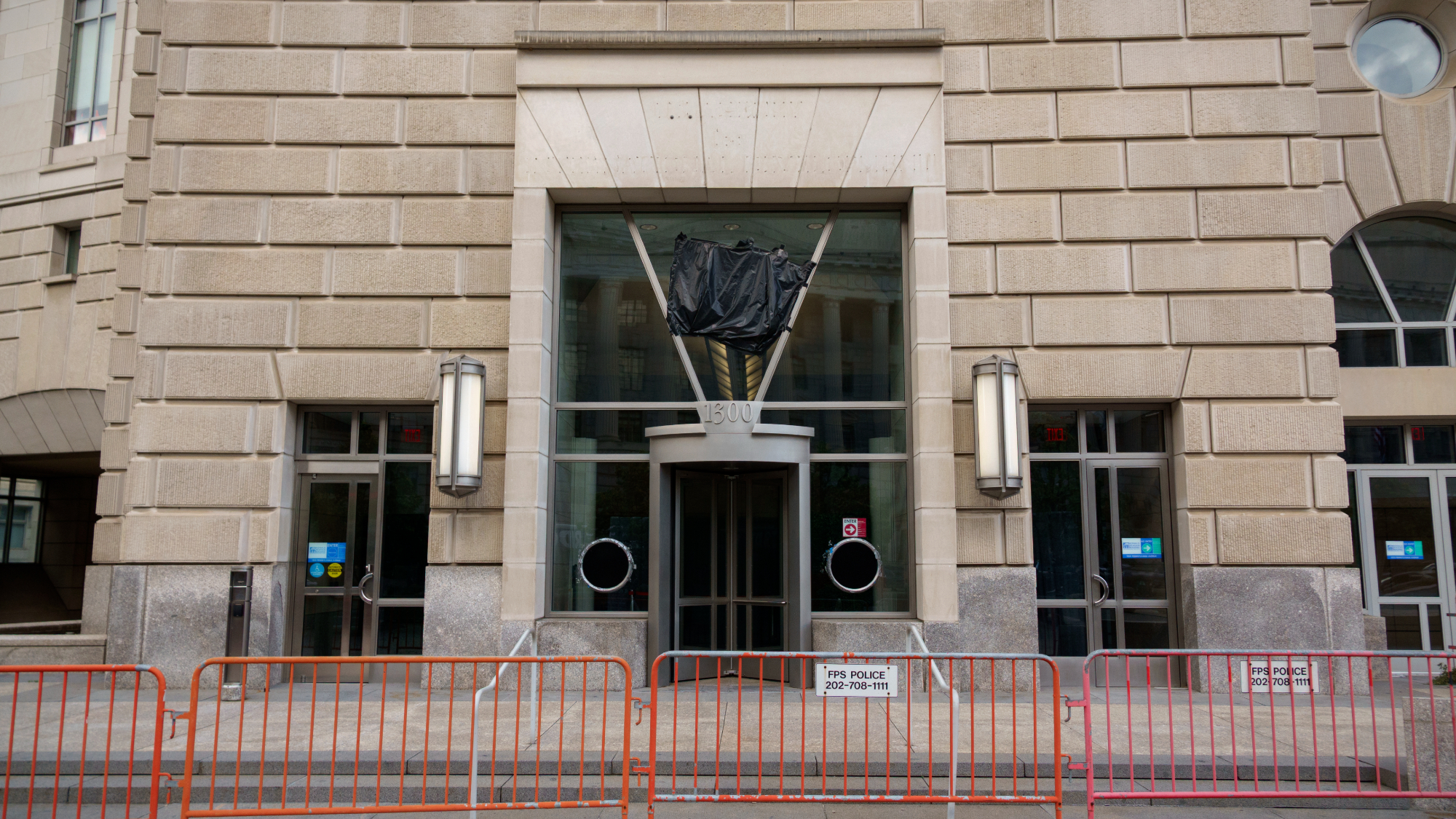The arguments for and against cutting foreign aid
Rebel Tories back move to reverse £4bn cut

A free daily email with the biggest news stories of the day – and the best features from TheWeek.com
You are now subscribed
Your newsletter sign-up was successful
The prime minister is facing a rebellion from dozens of his own MPs over cuts to the UK’s foreign aid budget.
Former international development secretary Andrew Mitchell has tabled an amendment to reverse the reduction of the government’s target of 0.7% of gross national income (GNI) to 0.5% - which equates to more than £4bn.
Former health secretary Jeremy Hunt and former Brexit secretary David Davis are among the senior Conservatives backing the move to restore aid spending to the previous target from next January.
The Week
Escape your echo chamber. Get the facts behind the news, plus analysis from multiple perspectives.

Sign up for The Week's Free Newsletters
From our morning news briefing to a weekly Good News Newsletter, get the best of The Week delivered directly to your inbox.
From our morning news briefing to a weekly Good News Newsletter, get the best of The Week delivered directly to your inbox.
Arguments for the cuts
The Covid contraction
Foreign Secretary Dominic Raab has said the decision to cut the aid budget, first announced in November, was “extremely difficult” but necessary, owing to the unforeseeable cost of dealing with the Covid-19 pandemic.
He told Sky’s Sophy Ridge last month that Covid had caused “the biggest contraction we’ve seen in the economy for 300 years, a budget deficit double what we saw in the peak of the financial crisis in 2008-2009”.
Temporary measure
A free daily email with the biggest news stories of the day – and the best features from TheWeek.com
Home Office Minister Victoria Atkins told Sky News today that the cuts were a “small temporary reduction”, adding: “No one could have foreseen the extent of the pandemic and the measures we were going to have to take as a country in order to deal with this.”
The UK is still “one of the largest donors of aid in the world”, she noted.
A spokesperson for the Foreign and Commonwealth Development Office has previously said that the UK will still spend a total of “more than £10bn this year to fight poverty, tackle climate change and improve global health”.
‘Charity begins at home’
A more general criticism of foreign aid has been that taxpayer money should be used to help disadvantaged people in the UK rather than abroad. The conservative Bow Group think tank has led calls for the government to use state cash to invest in domestic social and health care.
Bow Group chair Ben Harris-Quinney told the Daily Express in September that “regardless the old adage rings true that charity begins at home, as long as British people are going without, the British government’s job is to take care of them first”.
Distribution dilemmas
Critics of international aid also take issue with where and how the money is spent. Analysis findings released by the Independent Commission for Aid Impact (ICAI) in April showed that UK aid to superpower China hit a record £71m in 2019, for example.
Speaking on BBC Newsnight following the publication of the data, Ian Birrell, contributing editor at The Mail on Sunday, argued that the UK aid budget should be cut regardless of the pandemic as it is “propping up some of the worst governments in the world”. A YouGov poll in November suggested that two-thirds of Brits were also in favour of reducing foreign aid.
Arguments against the cuts
Moral obligation
Tory rebel Mitchell said this week that the cuts are already having a “devastating impact on the ground and are leading to unnecessary loss of life”. He has previously warned that up to 5.6 million fewer children will not be vaccinated as a result, potentially resulting in up to 100,000 deaths. United Nations Secretary General Antonio Guterres has also described the aid cuts as a “death sentence”.
The BBC reports that the reduction “has meant millions of pounds less is being spent on supporting girls' education, reproductive health, clean water, HIV/Aids, the humanitarian crisis in Yemen and Syria, and hundreds of other projects”.
Manifesto pledge
The Conservative manifesto for the 2019 election stated that, if elected, the party would “proudly maintain our commitment to spend 0.7% of GNI on development”.
Announcing his bid to reverse the cuts, Mitchell said that “every single member of the House of Commons was elected on a very clear manifesto promise to stand by this commitment”.
Global Britain
Cutting aid also undermines Boris Johnson’s vision of Global Britain as a “soft power superpower”, the Financial Times editorial board warned last week. Indeed, the vote on the aid amendment is likely to coincide with the G7 summit being hosted by the PM in Cornwall next week, where he will be the only world leader who is cutting their overseas spending budget.
Amendment supporter Tobias Ellwood, the Conservative chair of the Commons Defence Committee, told BBC Radio 4’s Today programme: “Retaining that aid budget is absolutely in the spirit of Global Britain.”
Legal obligation
David Cameron enshrined in law the UK’s commitment to spending 0.7% of GNI on foreign aid in 2015. Johnson has argued that the legislation allows the target to be temporarily missed in exceptional circumstances, but has been criticised for not allowing MPs to vote on the decision.
Conservative former minister Caroline Nokes, another of the amendment signatories, told ITV’s Peston: “It’s taken quite a lot of manoeuvring to find an opportunity to actually have a vote on this.”
Mitchell has tabled his amendment for the Advanced Research and Invention Agency (Aria) Bill, which establishes a new research agency. The “technical amendment would oblige the new agency to make up any shortfall in aid spending if the government were to miss the 0.7% target”, explains the BBC.
Commons Speaker Sir Lindsay Hoyle will decide whether the amendment should be put to a vote.
-
 The Olympic timekeepers keeping the Games on track
The Olympic timekeepers keeping the Games on trackUnder the Radar Swiss watchmaking giant Omega has been at the finish line of every Olympic Games for nearly 100 years
-
 Will increasing tensions with Iran boil over into war?
Will increasing tensions with Iran boil over into war?Today’s Big Question President Donald Trump has recently been threatening the country
-
 Corruption: The spy sheikh and the president
Corruption: The spy sheikh and the presidentFeature Trump is at the center of another scandal
-
 How corrupt is the UK?
How corrupt is the UK?The Explainer Decline in standards ‘risks becoming a defining feature of our political culture’ as Britain falls to lowest ever score on global index
-
 ‘The censorious effect is the same, even if deployed covertly’
‘The censorious effect is the same, even if deployed covertly’Instant Opinion Opinion, comment and editorials of the day
-
 The high street: Britain’s next political battleground?
The high street: Britain’s next political battleground?In the Spotlight Mass closure of shops and influx of organised crime are fuelling voter anger, and offer an opening for Reform UK
-
 Is a Reform-Tory pact becoming more likely?
Is a Reform-Tory pact becoming more likely?Today’s Big Question Nigel Farage’s party is ahead in the polls but still falls well short of a Commons majority, while Conservatives are still losing MPs to Reform
-
 Taking the low road: why the SNP is still standing strong
Taking the low road: why the SNP is still standing strongTalking Point Party is on track for a fifth consecutive victory in May’s Holyrood election, despite controversies and plummeting support
-
 What difference will the 'historic' UK-Germany treaty make?
What difference will the 'historic' UK-Germany treaty make?Today's Big Question Europe's two biggest economies sign first treaty since WWII, underscoring 'triangle alliance' with France amid growing Russian threat and US distance
-
 Obama, Bush and Bono eulogize USAID on final day
Obama, Bush and Bono eulogize USAID on final daySpeed Read The US Agency for International Development, a humanitarian organization, has been gutted by the Trump administration
-
 Is the G7 still relevant?
Is the G7 still relevant?Talking Point Donald Trump's early departure cast a shadow over this week's meeting of the world's major democracies